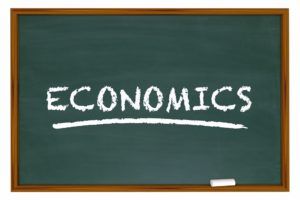What is Economics?
“An inquiry into the nature and causes of the wealth of nations”
What is Economics?
Economics comes from the ancient Greek word “oikonomikos” or “oikonomia.” Oikonomikos literally translates to “the task of managing a household.” French mercantilists used “economie politique” or political economy as a term for matters related to public administration.

Adam Smith’s Definition of Economics
Adam Smith was a Scottish philosopher, widely considered as the first modern economist. Smith defined economics as “an inquiry into the nature and causes of the wealth of nations.”
Criticism of Smith’s Definition
- The wealth-centric definition of economics limited its scope as a subject and was seen as narrow and inaccurate. Smith’s definition forced the subject to ignore all non-wealth aspects of human existence.
- The Smithian definition over-emphasized the material aspects of well-being and ignored the non-material aspects. It was assumed that human beings acted as rational economic agents who mindlessly strived to maximize their own well-being.
- The Smithian definition prevents the subject from exploring the concept of resource scarcity. The allocation and use of scarce resources are seen as a central topic of analysis in modern economics.
Alfred Marshall’s Definition of Economics
British economist Alfred Marshall defined economics as the study of man in the ordinary business of life. Marshall argued that the subject was both the study of wealth and the study of mankind. He believed it was not a natural science such as physics or chemistry, but rather a social science.
Criticism of Marshall’s Definition
- The Marshallian definition, like the Smithian definition, ignored the problem of scarce resources, which possess unlimited potential uses.
- Marshall’s definition restricted economics as a subject to only analyze the material aspects of human welfare. Non-material aspects of welfare were ignored. Critics of the Marshallian definition asserted that it was difficult to separate material and non-material aspects of welfare.
- The Marshallian definition does not provide a clear link between the acquisition of wealth and welfare. Marshall’s critics claimed that it left the subject in a state of perpetual confusion. For instance, there are plenty of activities that might generate wealth but that can reduce human welfare.
Lionel Robbin’s Definition of Economics
Lionel Robbin, another British economist, defined economics as the subject that studies the allocation of scarce resources with countless possible uses. In his 1932 text, “An Essay on the Nature and Significance of Economic Science,” Robbins said the following about the subject: “Economics is the science which studies human behaviour as a relationship between ends and scarce means which have alternative uses.”
Criticism of Robbin’s Definition
- Robbin’s definition of economics transformed the subject from a normative social science into a positive science with an undue emphasis on individual choice. His definition prevented the subject from analyzing topics such as social choice and social interaction theory, which are important topics within the modern microeconomic theory.
- Robbin’s definition prevented it from analyzing macroeconomic concepts such as national income and aggregate supply and demand. Instead, economics was merely used to analyze the action of individuals, using stylized mathematical models.
Modern Definition of Economics
The modern definition, attributed to the 20th-century economist, Paul Samuelson, builds upon the definitions of the past and defines the subject as a social science. According to Samuelson, “Economics is the study of how people and society choose, with or without the use of money, to employ scarce productive resources which could have alternative uses, to produce various commodities over time and distribute them for consumption now and in the future among various persons and groups of society.”
Additional Resources
Thank you for reading CFI’s guide to Economics. To keep advancing your career, the additional CFI resources below will be useful: